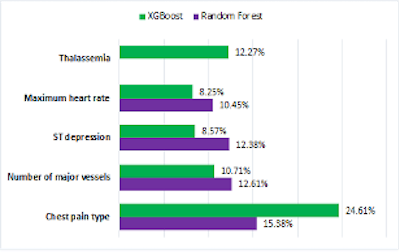A Comprehensive Approach to Heart Disease Analysis Using Machine Learning Algorithms
##plugins.themes.bootstrap3.article.main##
Abstract
Heart disease, associated with Cardiovascular Disease (CVD), has become the leading global cause of mortality, claiming an estimated 17.9 million lives annually. Recognizing the preventable nature of nearly 90% of these cases, researchers have turned to data mining methodologies to aid healthcare professionals in early diagnosis. Machine learning improves operational efficiency. Early heart disease prediction will simplify patient management, reduce hospital admissions, and minimize healthcare costs. Beyond that, machine learning technologies improve accuracy, enabling better decision-making and efficient use of medical resources. Our research seeks to establish an effective assumption framework for predicting heart disease probabilities. The ultimate goal is to pinpoint the most accurate classification algorithm, which is crucial for distinguishing between normal and abnormal cases. Notably, our analysis highlights the efficacy of the XGBoost algorithm, boasting an impressive 99.90% accuracy. This discovery holds promise for advancing early detection strategies and mitigating the impact of heart-related conditions on global health.
##plugins.themes.bootstrap3.article.details##

This work is licensed under a Creative Commons Attribution-NonCommercial-NoDerivatives 4.0 International License.

